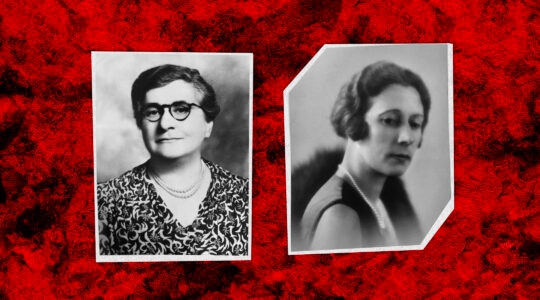On the 14th anniversary of the assassination of Yitzhak Rabin, Ha’aretz columnist Ari Shavit says the slain prime minister was not a saint and was no genius — but he was great:
But even though he was neither a saint nor a genius, Rabin was great. He was great not just because he saved Jerusalem in the War of Independence and whipped the Israel Defense Forces into shape ahead of the Six-Day War. He was great not just because he helped create a strategic alliance with the United States in 1970 and began the peace process with Egypt in 1975. Rabin was great because during his second term as prime minister he realized the existential danger of occupation and decided to take action. The specific action he took – the Oslo process – was quite flawed. But the septuagenarian’s willingness to foment change and take risks to extricate Israel from its troubles turned Rabin into a historic figure and role model.
When Benjamin Netanyahu and Ehud Barak give speeches about Rabin a this week’s memorial ceremonies, they should ask themselves where they are compared to him. Nine months have passed since the general election, and seven have passed since the government was established. But so far, the captains of this ship haven’t bothered to let the passengers know where we’re going – what the objective is, what the destination is. This ambiguity gives the Bibi-and-Barak government the charm of a Rorschach test: People can see in it whatever they want to see. The problem is that at the end of the day, the government is just as politically effective as a Rorshach test.
Liat Collins of The Jerusalem Post offers her own poignant reflections on Rabin, and ends with a plea for partisans to stop using his murder as a political weapon:
This year, the first to raise the ghost of Rabin was Haaretz, which saw fit to publish private letters by Leah Rabin in which she called Prime Minister Binyamin Netanyahu (then in office for the first time) "corrupt" and "a liar." Their publication was condemned by his daughter, Dalia Rabin, who presumably realized it brought no honor to either of her parents or to Netanyahu in Round II as premier.
Equally embarrassing were the attempts by Peace Now activists to encourage right-wing MKs and personalities into condemning anybody connected with Oslo and the peace process in a mock documentary. The fiasco resulted in the desired outrageous statements being aired, alongside news that Knesset Speaker Reuven Rivlin had banned Peace Now Secretary-General Yariv Oppenheimer from entering the Knesset until further notice.
Left-wing politicians and activists, those whose camp had no problem shouting "murderer" outside the window of prime minister Menachem Begin in the First Lebanon War – or even condemning Ariel Sharon until his sharp Left turn produced the Gaza disengagement plan – once more accused the Right of dangerously abusing the rights of freedom of expression.
More than a decade later, it is sadder than ever that instead of focusing on the real dangers facing Israel – the country and its society – there are those who prefer to use Rabin’s name as a tool of delegitimization. May he rest in peace.
JTA has documented Jewish history in real-time for over a century. Keep our journalism strong by joining us in supporting independent, award-winning reporting.





